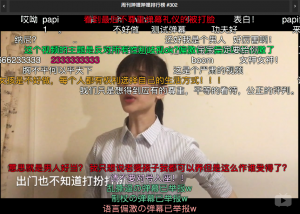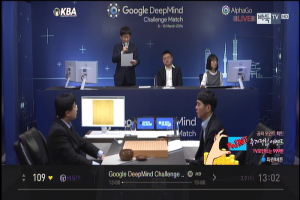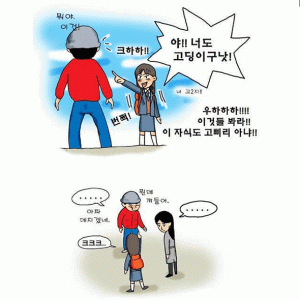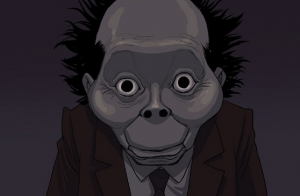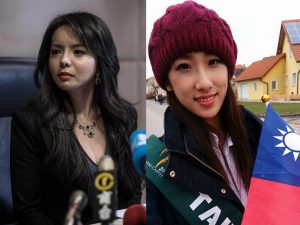The Heroism in Edge of Tomorrow
Memo #378 By: Cyrus Huiyong Qiu – cyrusqiu [at] mail.ubc.ca Doug Liman’s epic action sci-fi movie Edge of Tomorrow (starring Tom Cruise and Emily Blunt) in 2014 was the very first adaptation of Japanese “light novel,” in this case one titled All You Need is Kill, by Hiroshi Sakurazaka. The story is about humanity’s fight to […]
What Appears After the End of the World? Post-Humanity in Japanese Anime, Manga, and Novel of the 1980s
Memo #375 By: Shota Iwasaki – shota.iwasaki [at] alumni.ubc.ca Depictions of cyborgs, extraterrestrials, and dystopias in fiction are not about the future, but are about contemporary society and their current transformations. Given this, what fears, hopes, and desires did Japanese science fiction at the height of affluence in the 1980s reflect? After radical student movements and rapid economic […]
“Bullet Comments”: the Construction of Online Carnival in China
Memo #374 By: Ying Guo – gynut2010 [at] 163.com Is the film so boring that you can’t help ranting? Find something interesting about that TV show? Why not share your comments and thoughts on the screen? The practice of displaying comments directly on the video screen has attracted tens of thousands who have registered on […]
Moomins Multiplied: How Finnish art became popular in Japan
Memo #371 By:Hyung Gu Lynn – hlynn [at] mail.ubc.ca The Moomin stories by Tove Jansson are landmark works of Finnish children’s literature/art. But Japan is the largest market for Moomin goods in the world and has served as a second home since the late-1960s. The Moomins’ popularity in Japan can be explained through several multiplicities, rather […]
Moomins Ascendant in Asia: Interview with Moomin Characters Ltd. Managing Director Roleff Kråkström
Memo #370 Featuring Roleff Kråkström – Roleff.Krakstrom [at] moomin.fi The Moomins, a family of trolls living in a valley with other colourful characters, have been beloved in their home country of Finland since the famed artist Tove Jansson published her first book featuring these characters in 1945. The stories have been translated into 50 different languages, […]
Hope or Worry for the Future? Google DeepMind’s AlphaGo vs. Lee Sedol in Seoul
Memo #368 By: Hyung Gu Lynn – hlynn [at] mail.ubc.ca If humans lose against artificial intelligence (AI) in a complex two-player game, is this a cause for hope or worry? The answer is – both. Currently battling in Seoul, South Korea, Google DeepMind’s AlphaGo, the powerful AI, is up 2-0 against Lee Sedol, the most decorated […]
South Korean webtoons: challenges of translating the domestic to the global
Memo #366 By:Hyung Gu Lynn – hlynn [at] mail.ubc.ca South Korean webtoons have grown rapidly since their launch in the early 2000s, with over 6 million individual readers accessing platforms per day in the domestic market. Since 2014, major Korean webtoons platforms have been providing access to translated versions of select titles in the hopes of […]
Translating Korean Webtoons: An Interview with Bruce and Ju-Chan Fulton
Memo #365 By: Bruce and Ju-Chan Fulton – Bruce.Fulton [at] ubc.ca and ju.chan.fulton [at] gmail.com With a domestic market estimated at well over 6 million individual readers per day and valued at over $300 million in 2015, South Korean webtoons have grown rapidly in scale and variety since their initial appearance on major search portal landing pages in the […]
Is tourism the solution to insurgency in the North East of India?
Memo #361 By Aadil Brar – aadil.brar [at] alumni.ubc.ca The Northeastern states of India have experienced years of violence and separatist movements. The AFSPA (Armed Forces Special Powers Act), the act gives the military and air forces the authority to interfere in the internal affairs of the regional states, applies to the seven sister states, Arunachal […]
Pageantry Politics: Beauty Queens Challenging the Chinese Government
Memo #358 By Jonathan Brasnett – jonathan.brasnett [at] alumni.ubc.ca While beauty contests have often been analyzed as sites of gendered oppression or commodification, they have actually long been sites of political contestation and to a lesser degree, activism by the contestants. In November 2015, when the People’s Republic of China faced two beauty queens raising controversial […]


